
Sir Richard Starkey, known professionally as Ringo Starr, is an English musician, songwriter and actor who achieved international fame as the drummer for the Beatles. Starr occasionally sang lead vocals with the group, usually for one song on each album, including "Yellow Submarine" and "With a Little Help from My Friends". He also wrote and sang the Beatles songs "Don't Pass Me By" and "Octopus's Garden", and is credited as a co-writer of four others.
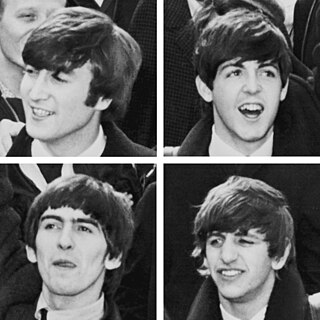
The Beatles were an English rock band formed in Liverpool in 1960. The core lineup of the band comprised John Lennon, Paul McCartney, George Harrison and Ringo Starr. They are widely regarded as the most influential band of all time and were integral to the development of 1960s counterculture and the recognition of popular music as an art form. Rooted in skiffle, beat and 1950s rock 'n' roll, their sound incorporated elements of classical music and traditional pop in innovative ways. The band also explored music styles ranging from folk and Indian music to psychedelia and hard rock. As pioneers in recording, songwriting and artistic presentation, the Beatles revolutionised many aspects of the music industry and were often publicised as leaders of the era's youth and sociocultural movements.
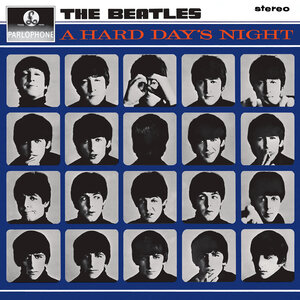
A Hard Day's Night is the third studio album by the English rock band the Beatles, released on 10 July 1964 by Parlophone, with side one containing songs from the soundtrack to their film of the same name. The American version of the album was released two weeks earlier, on 26 June 1964 by United Artists Records, with a different track listing including some from George Martin's film score. Unlike their first two albums, all 13 tracks on A Hard Day's Night were written by John Lennon and Paul McCartney.

Klaus Otto Wilhelm Voormann is a German artist, musician, and record producer.
Apple Records is a British record label founded by the Beatles in 1968 as a division of Apple Corps Ltd. It was initially intended as a creative outlet for the Beatles, both as a group and individually, plus a selection of other artists including Mary Hopkin, James Taylor, Badfinger, and Billy Preston. In practice, the roster had become dominated by the mid-1970s with releases of the former Beatles as solo artists. Allen Klein managed the label from 1969 to 1973, then it was managed by Neil Aspinall on behalf of the Beatles and their heirs. Aspinall retired in 2007 and was replaced by Jeff Jones. Jones stepped down on October 21st, 2024.

The Plastic Ono Band was a rock band and Fluxus-based artist collective formed by John Lennon and Yoko Ono in 1968-9 for their collaborative musical and sound art projects, films, conceptual art projects and eventual solo LPs. The creation of The Plastic Ono Band, which began in 1967 with Ono's idea for an art exhibition in Berlin, allowed Lennon to separate his artistic output from that of The Beatles.

"Maxwell's Silver Hammer" is a song by the English rock band The Beatles from their 1969 album Abbey Road. It was written by Paul McCartney and credited to the Lennon–McCartney partnership. The song is about a student named Maxwell Edison who commits murders with a hammer, with the dark lyrics disguised by an upbeat sound. McCartney described the song as symbolic of the downfalls of life, being "my analogy for when something goes wrong out of the blue, as it so often does".

"Yer Blues" is a song by the English rock band the Beatles, from their 1968 double album The Beatles. Though credited to Lennon–McCartney, the song was written and composed by John Lennon during the Beatles' retreat in Rishikesh, India. The song is a parody of blues music, specifically English imitators of blues.

"Honey Don't" is a song written by Carl Perkins, originally released on January 1, 1956 as the B-side of the "Blue Suede Shoes" single, Sun 234. Both songs became rockabilly classics. Bill Dahl of Allmusic praised the song saying, "'Honey Don't' actually outclasses its more celebrated platter-mate in some ways." It has been covered by more than 20 other artists, including the Beatles, Ronnie Hawkins and Johnny Rivers. The song has appeared in films such as The Prince of Tides, Diner, and Perfect Sisters.

"I'll Get You" is a song by the English rock band the Beatles, written by John Lennon and Paul McCartney, and released by the Beatles as the B-side of their 1963 single "She Loves You". The song was initially titled "Get You in the End".

Maureen Starkey Tigrett, also known as Mo Starkey, was a hairdresser from Liverpool, England, best known as the first wife of Ringo Starr, the Beatles' drummer. When she was a trainee hairdresser in Liverpool, she met him at the Cavern Club, where the Beatles were playing. Starr proposed marriage at the Ad Lib Club in London on 20 January 1965. They married at the Caxton Hall Register Office, London, in 1965, and divorced in 1975.
The Beatles were an English rock band, active from 1960 until 1970. From 1962 onwards, the band's members were John Lennon, Paul McCartney, George Harrison and Ringo Starr. Their break-up is attributed to numerous factors, including: the strain of the Beatlemania phenomenon, the 1967 death of their manager Brian Epstein, bandmates' resentment of McCartney's perceived domineering behaviour, Lennon's heroin use and his relationship with Yoko Ono, Harrison's increasingly prolific songwriting, the floundering of Apple Corps, the Get Back project and managerial disputes.
"I'm the Greatest" is a song written by English musician John Lennon that was released as the opening track of the 1973 album Ringo by Ringo Starr. With Starr, Lennon and George Harrison appearing on the track, it marks the only time that three former Beatles recorded together between the band's break-up in 1970 and Lennon's death in 1980. Lennon wrote the song in December 1970 as a wry comment on his rise to fame, and later tailored the lyrics for Starr to sing. Named after one of Muhammad Ali's catchphrases, the song partly evokes the stage-show concept of the Beatles' 1967 album Sgt. Pepper's Lonely Hearts Club Band.

Let It Be is a 1970 British documentary film starring the Beatles and directed by Michael Lindsay-Hogg. The film documents the group's rehearsing and recording songs in January 1969 for what was to become their twelfth and final studio album Let It Be. The film ends with an unannounced rooftop concert by the group, their last public performance together.

"Back Off Boogaloo" is a song by the English rock musician Ringo Starr that was released as a non-album single in March 1972. Starr's former Beatles bandmate George Harrison produced the recording and helped Starr write the song, although he remained uncredited as a co-writer until 2017. Recording took place in London shortly after the pair had appeared together at Harrison's Concert for Bangladesh shows in August 1971. The single was a follow-up to Starr's 1971 hit song "It Don't Come Easy" and continued his successful run as a solo artist. "Back Off Boogaloo" peaked at number 2 in Britain and Canada, and number 9 on America's Billboard Hot 100. It remains Starr's highest-charting single in the United Kingdom.
The Beatles were originally a quartet, but only Paul McCartney and Ringo Starr remain.
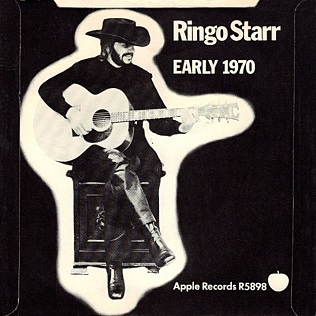
"Early 1970" is a song by the English rock musician Ringo Starr that was released as the B-side of his April 1971 single "It Don't Come Easy". A rare example of Starr's songwriting at the time, it was inspired by the break-up of the Beatles and documents his relationship with his three former bandmates. The lyrics to the verses comment in turn on Paul McCartney, John Lennon and George Harrison as individuals, and the likelihood of each of them making music with Starr again. In the final verse, Starr offers a self-deprecating picture of his musical abilities and expresses the hope that all four will play together in the future. Commentators have variously described "Early 1970" as "a rough draft of a peace treaty" and "a disarming open letter" from Starr to Lennon, McCartney and Harrison.
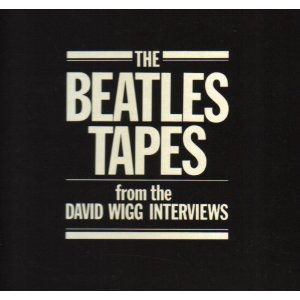
The Beatles Tapes from the David Wigg Interviews is an audio album of interviews with each of the four members of the Beatles: John Lennon, Paul McCartney, George Harrison and Ringo Starr. British journalist David Wigg interviewed the Beatles individually at various points from December 1968 or January 1969 to December 1973, and excerpts from some of these recordings constitute the album's spoken words. Although he was a columnist for the London newspaper The Evening News, most of the interviews were recorded for the BBC Radio 1 series Scene and Heard. Interspersed among the interview excerpts are instrumental performances of Beatles songs played by other musicians. The Beatles tried to prevent the album's publication, but it was released in the United Kingdom on 30 July 1976 under the Polydor label and in the United States in 1978. Both George and Ringo did attempt to sue the Recording label, however, both of them lost the case because the interviews were done on public radio on the BBC.

The Fest for Beatles Fans is a twice-annual, three-day festival that honors the lasting legacy of the Beatles. The festival takes place in the New York metropolitan area, ordinarily in March or April, and in Chicago, Illinois, each August. Running Friday through Sunday, the Fest features special guests, live concerts, exhibits, art contests, a Beatles marketplace, a sound-alike contest, a Battle of the Beatles Bands, and more.
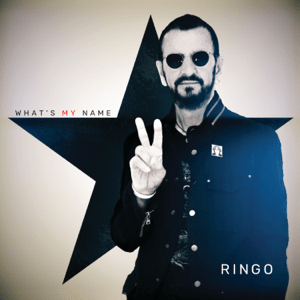
What's My Name is the twentieth studio album by English singer-songwriter Ringo Starr. It was released on 25 October 2019 through Roccabella and Universal Music Enterprises. The album was again recorded at Roccabella West, Starr's home studio, and features collaborations with Joe Walsh, Benmont Tench, Edgar Winter, Steve Lukather, Richard Page, and Warren Ham. It also includes a cover of John Lennon's "Grow Old with Me", on which Starr invited Paul McCartney to sing and play bass guitar, and a solo version by Starr of "Money ", a Motown song previously recorded by the Beatles. Starr stated that What's My Name was likely to be his last full-length album, with plans to release EPs in the future instead, though he later announced his album Look Up to be released in 2025.














